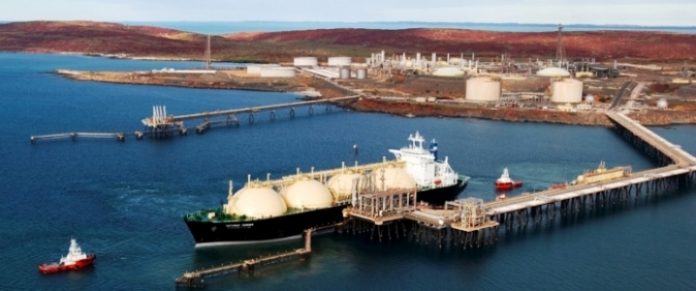The world’s liquefied natural gas (LNG) market has dramatically changed over the past few years. Continuously growing supply has led to a glut, and the U.S. starting LNG exports has led to more flexible contract terms. LNG trade is increasingly shifting to a buyers’ market, where importers are shaping the future of the LNG trade deals with exporters.
Charif Souki, co-founder of the U.S. firm that upended LNG trade contracts, Cheniere Energy, has started a new company after being ousted from Cheniere two years ago. Now Souki’s new venture, Tellurian Inc, is talking with potential buyers who want to be not only importers but equity investors as well.
“Nobody is keen to sign contracts,” Souki told Bloomberg, “Even the people who kind of think they should are afraid to do it.”
“We’ve been approached by at least a dozen and a half people, companies, that say: ‘We’d like to participate with you. You know how to build facilities cheaply and we’ll trust you to go and find the resource,’” Souki said, recounting what buyers are telling him about potential deals.
At the end of last year, France’s oil and gas supermajor Total SA signed a deal to buy a 23-percent stake in Tellurian for $207 million to develop an integrated gas project, from the acquisition of competitive gas production in the U.S. to the delivery of LNG to international markets from the Driftwood LNG terminal.
Last month, Tellurian signed a deal to buy natural gas producing assets and undeveloped acreage in northern Louisiana for $85.1 million, as part of its strategy to add production assets to grow its business.
“We expect our full cycle cost of production and transport to markets will be approximately $2.25 per MMBtu, which represents a significant savings to natural gas we will purchase at Henry Hub and other regional liquidity points,” Tellurian president and CEO Meg Gentle said.
Now potential LNG buyers want partnerships, not just supply deals, according to Souki, and to executives at other U.S.-based LNG developers who spoke to Bloomberg.
“Today, it’s the buyers’ market,” Leonid Mikhelson, CEO at Russia’s gas firm Novatek, recently told reporters, in a sign that LNG exporters around the world see that importers are dictating the market terms.
Last week, India’s Minister of Petroleum and Natural Gas, Dharmendra Pradhan, tweeted “As we increase the % of gas in our energy basket as cleaner fuel we need better terms & prices for our LNG import contracts.”
According to the International Energy Agency’s (IEA) Global Gas Security Review 2017, “Looking forward, the pool of legacy export contracts with fixed destination and long duration can be expected to shrink as these expire, and would be replaced by more flexible contracts.”
Last year, the share of flexible destination contracts continued to increase and made up 41.9 percent of newly signed volumes in 2016, the IEA’s review said. In addition, the average contract length has declined. For contracts signed before 2014, the average duration was 16 years, for deals in 2015 it was 10 years, and for contracts signed in 2016, the average duration was just 9 years.
“In fact, a greater proportion of new contracts have flexible terms (i.e. no destination clauses), encouraged by both the innovative business models of the US suppliers and policies in the consuming countries and territories. Expiring ‘legacy’ long-term contracts would also provide an opportunity to renegotiate terms towards more flexibility,” the IEA said.
At the beginning of this year, James Walker, a specialist with Energy Insights at McKinsey, wrote:
“‘Short-termism’ is growing in the LNG market, which is increasingly characterized by greater spot availability, shorter term supply contracts and buyers diversifying their portfolios to capitalize on the current market oversupply.”
McKinsey expects the LNG market to continue to be oversupplied through 2024, but China having “great potential to absorb a large share of the surplus volumes from 2018 onwards.”
In the current state of the LNG market, it’s now a buyers’ world.











































